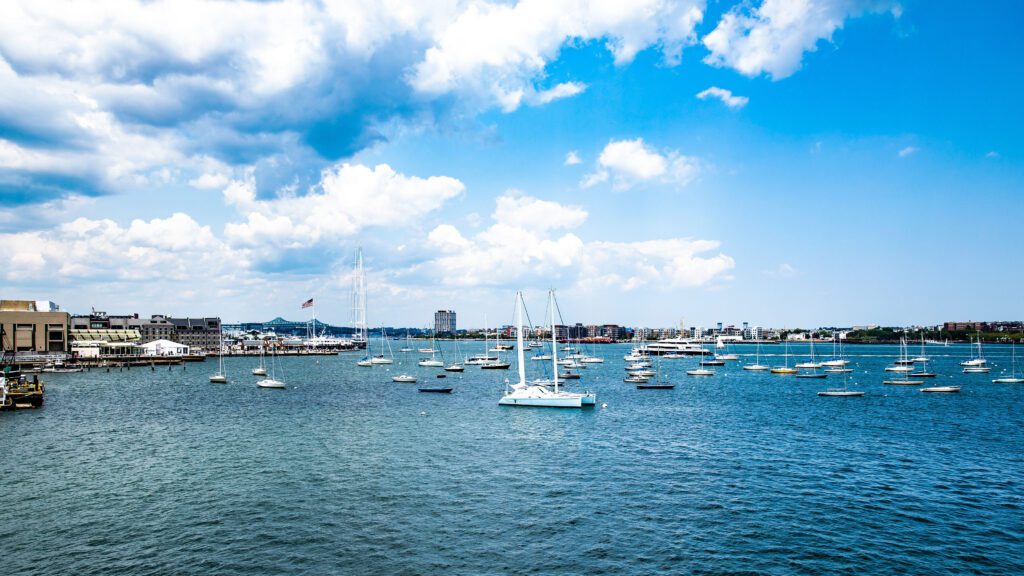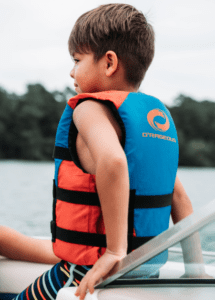

If you’re the owner of one of the almost 12 million registered boats in the United States, ahoy! Boating is a great way to enjoy the natural world around us — especially when it’s hot or sunny! The cool breeze and fun with friends and water make for a delightful day.
But before you set sail or hit the gas, make sure you’re operating your boat safely. Read on to learn some things everyone should know about boat safety—and some other tips that are less common knowledge!
Is a Boating Safety Course Worth it?
Yes. A free boating safety course in Massachusetts is a little time intensive, but it’s totally worth it. The class, which is open to anyone 12 and older, takes multiple days and 10-12 hours to complete!
A boating safety class may sound like a hassle, but it could be the difference between a nice day on the boat and you or your passengers suffering a boating injury or even becoming a casualty in a boating accident.
>> Driving Instead of Boating? Learn About Less-Known Motor Vehicle Safety Risks
More than 4,000 boating accidents were reported in 2022, resulting in 2,222 injuries and 658 deaths. So while the taking the class might require a little extra time and effort, going into your boat trip armed with boating safety knowledge makes things safer and less stressful for everyone.
“Going through a boating safety course is very important,” says Chad Hunter, Plymouth, Massachusetts Harbormaster. “A lot of people are unaware of the risks and being on the water—the environment is ever-changing.”
If you’re looking for a supplemental option, Boat On Course has a great library of content with essential boat safety tips. Check out their recommendations on what to bring for Essential Boating Safety Gear below!
Make a Boating Safety Checklist
Before you’re ready to climb aboard and head out for the day, it’s important to review your boat safety checklist to make sure you’ve addressed any possible safety risks. Read on for six key components to include on your boating safety checklist.
- Check out the weather forecast. This might seem obvious, but when you plan a trip on a boat, make sure the weather will be good for boating. The forecast may have been sunny when you first planned your trip, but make sure the weather report is holding up that day.
- File a float plan. Someone needs to know where you’re going, who’s with you, and what you’re bringing, as well as your boat’s registration information. This ensures that someone will have key details to share with first responders if you get lost, stuck, or don’t return from the trip.
- Make sure you have life jackets. Everyone on board your boat should have a properly fitting life jacket. Kids are required to wear a life jacket at all times on boats and our furry friends should have them too!


“The best life jacket is the one you will wear,” said Peg Phillips, executive director of the National Safe Boating Council. “Whether you’re going fishing or just enjoying a ride on the boat, make sure you’re prepared for the adventure by wearing a life jacket and knowing how to use required safety gear.”
4. General safety items. While you’re getting the life jackets, make sure you bring other boat safety equipment like a fire extinguisher, a navigation system or flotation devices.
- Dress appropriately. Always make sure you have appropriate clothing for being out on the water! No matter how nice the forecast looks, it’s always a good idea to bring a sweatshirt, a waterproof jacket, sunglasses, and a hat to make sure you’re covered in case of unpredictable weather.
- Take extra precautions. Get a free vessel check through the U.S. Coast Guard, and share safety features and operating instructions with at least one of your passengers so they’re prepared to help in case of an emergency. Not only can it get you out of a sticky situation faster, it’s important to have backup in case the boat operator is injured or otherwise incapacitated during the trip.
“Prepare for a great boating season by inspecting your boating safety gear and commit to providing comfortable life jackets for all your passengers to wear every time you go boating,” said Phillips.
Safety Tips For Your Boat’s Maiden Voyage
Whether you’re a sailor or a speedboat lover, boating is a way of life for a lot of people.
But everyone has to start somewhere, so make sure to prepare properly for your first boating trip. Even if you’ve taken your safety course and run through your boat safety checklist, don’t go 0 to 60!
“Most people start out with smaller boats,” Hunter says. “It’s not like a car, you can’t just park and walk away. You stop, but it continues to move.”
Take it easy. The first time you head out on the water, you should overemphasize safety. Prepare in advance for what you’re going to do, and avoid the temptation of overdoing the activities. Instead of bringing water skis, fishing gear and a scuba suit, talk to your boating party and agree on just one activity to ensure everyone has a safe experience.
Other Important Boat Safety Tips
Don’t drink when at the helm. Whoever is operating the boat has the safety of everyone else aboard in their hands. If the boat’s operator has been drinking than everyone is at risk.
Beware of Boater’s Hypnosis. If you’re the one operating the boat, the risks of drinking alcohol are even greater due to a phenomenon called Boater’s Hypnosis. The combination of noise and vibrations, along with the sun, glare and wind on the open water can make a boat operator slow to react, mirroring the effects of drinking. Adding alcohol to the equation can lead to further impairment, which is a recipe for disaster.
>> Stopping for a Cookout? Read These Important Food Safety Tips
“There are a lot of added stressors that your body is going through,” Hunter says. “It only enhances intoxication. You should dedicate a captain that’s not drinking when you go out on a boat.”
Know how to navigate. Most waterways have charts prepared by the government or locally. Learning how to read charts is extremely helpful in keeping you and your fellow passengers safe on the water.
Use your engine cut-off switch. Also known as a safety lanyard or an engine kill switch, the engine cut-off switch is designed to stop the boat’s engine if the operator is thrown from the helm. This safety feature is essential for motorboat operators, especially when turning at high speeds or navigating choppier waters.


Have a Boating-Related Injury? Keches Law Group Can Help!
Contact our personal injury lawyers to help file a boating-related personal injury case, or our workers’ compensation attorneys to file a Longshore and Harbor Workers’ Compensation Act (LHWCA) claim!




